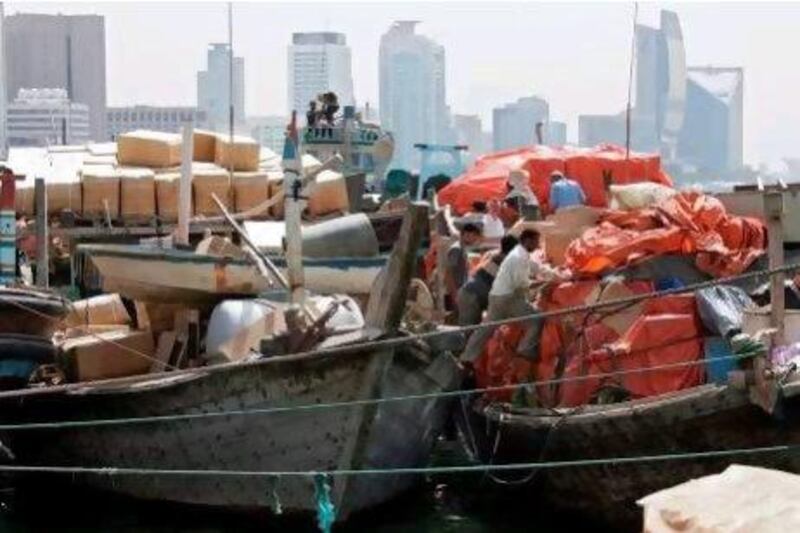Companies in the UAE doing business with Iran are steeling themselves for a tightening of sanctions, as the United Kingdom, France and Germany seek to exert pressure on the European Union to ramp up measures even further.
Banks, oil companies and traders dealing with Iranian companies, as well as individuals and goods from the country, are already subject to a complex web of legal hurdles as a result of European and US sanctions aimed at Iran's nuclear programme.
Existing EU rules focus mainly on insurance and energy.
Under the sanctions, branches of EU companies operating in the UAE dealing with Iran are at risk, said Patrick Murphy, a senior associate at the law firm Clyde & Co in Dubai, in a press briefing about the sanctions yesterday.
Similarly, UAE firms doing business with Iran also may be at risk if they are buying goods and services from the EU and pay for them in euros.
"The more difficult way the sanctions may apply to a company here is if they have EU nationals working for them and that's the grey area, which has very little assistance given by the regulations," said Mr Murphy. "If they are operating in the insurance or energy sectors the individuals themselves might find that they are liable for a breach of the sanctions even if the company they are working for is not."
In a sign that further action may be in the pipeline, foreign ministers of the UK, France and Germany have written to their EU counterparts urging them to "further step up the pressure" against Iran by agreeing to new sanctions, according to a joint letter seen and reported by Agence France-Presse on Monday.
The ministers called on the EU to agree to action in the areas of energy, finance, trade and transport to enable sanctions to be adopted on October 15.
The UAE's historic trade and commercial ties with Iran mean companies operating in the country have found themselves on the frontline of the sanctions.
Morison Menon Chartered Accountants successfully overturned a ruling by the European Council last December that it was acting as a front for the Islamic Republic of Iran Shipping Lines, an entity blacklisted by the EU.
In April the Dubai accountancy had its name removed from a list of companies that the EU suspected had links to Iran's nuclear or ballistic missiles programme. But Raju Menon, the chairman and group managing partner of Morison Menon, said the allegations had still hurt the company.
"The EU were mistaken and I appreciate that they removed our name from the list, but we were affected and lost clients and withdrew our licence from the Dubai Financial Services Authority," he said.
Other companies have changed their way of doing business to adapt to the regulations.
Noor Islamic Bank cut off dealings with Bank Melli Iran and Bank Saderat Iran in December ahead of US sanctions on Iranian finance.
"Foreign banks that knowingly engage in significant transactions with designated Iranian banks or the Iran Central Bank will be sanctioned," said Douglas Maag, a senior counsel in Clyde and Co's New York office. "It means they may not be allowed to do US dollar transactions as they will be shut out of the US financial system."
US regulations are also set to be tightened. On Monday, the US Treasury said it had linked the National Iranian Oil Company to the country's Islamic Revolutionary Guard Corps.
That allegation opens the door to imposing further sanctions on any foreign bank that facilitates transactions with the oil company.





